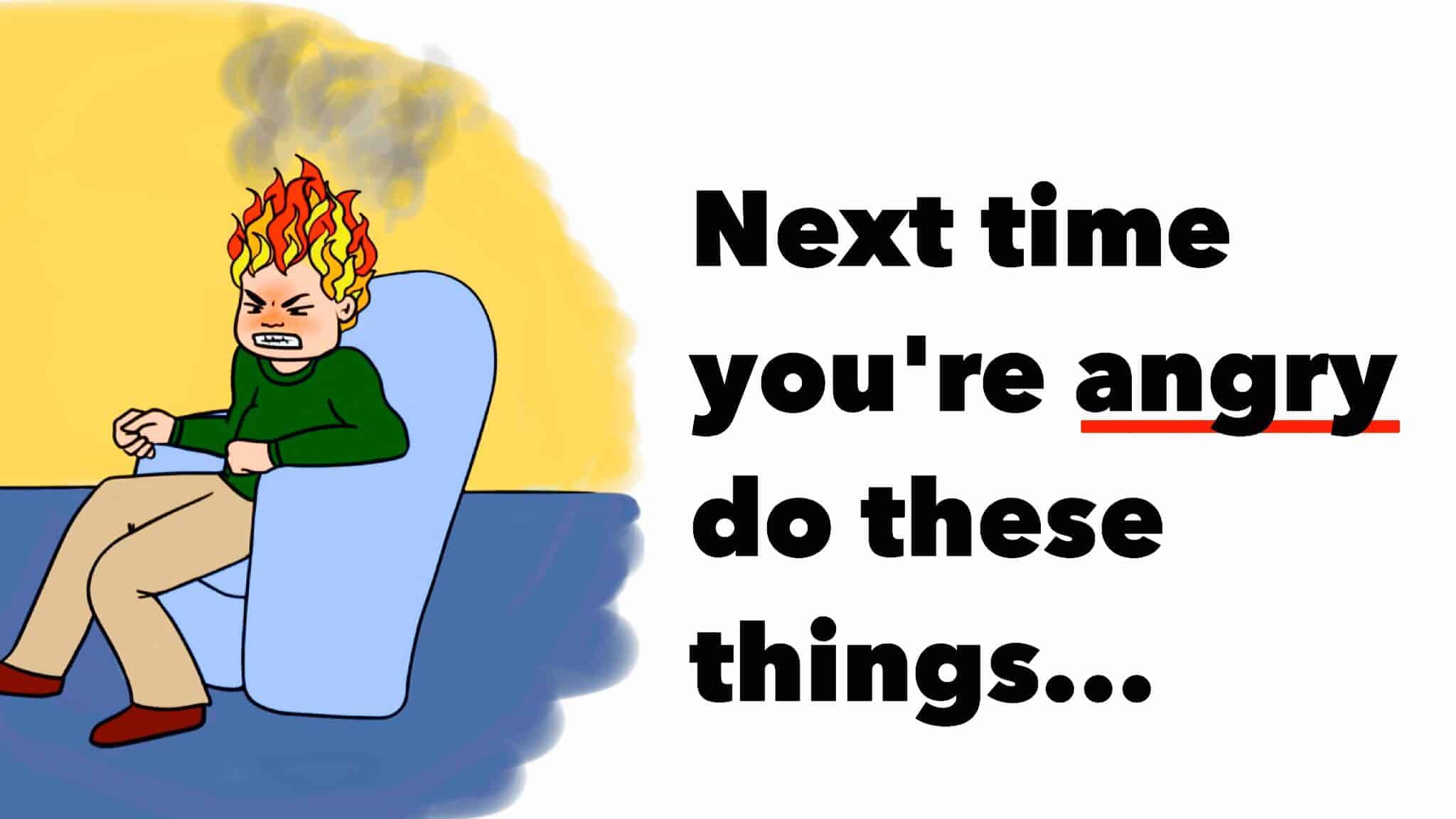We all need to release anger sometimes in a world with ever-increasing pressures and frustrations. Holding onto destructive emotions such as anger can lead to harmful behavior, such as throwing or breaking things or even physical violence toward others. Therefore, taking care of the angry feeling before it gets out of hand can prevent uncontrolled reactions and damaged relationships.
Explosive anger that leads to verbal or physical abuse affects millions of people in the U.S. According to a 5-year-old study published in the journal Behavioral Science & Law, around 9 percent of Americans, or 22 million people, have had issues with impulsive anger.
Furthermore, these people reported having easy access to at least one gun, which only compounds the problem. The people in the study didn’t have normal anger, either; they reported uncontrollable bouts of rage that usually led to physical acts of violence or breaking items around their house.
If you suffer from this type of anger, don’t worry. You can follow these tips to get your anger under control and live a more peaceful, stress-free life.
Here are ten healthy ways to release anger without harming others:
“Where there is anger, there is always pain underneath.” – Eckhart Tolle
Take a break from the conversation or issue that is making you angry.
No one can have a rational, adult conversation in the heat of the moment. When you feel hotheaded or stressed out about something, tell the person you need to walk away and think things over. Then when you feel calmer and better able to address the problem, come back to it and discuss things in a peaceful manner. We all disagree about something or get frustrated with life from time to time, but how we handle these issues defines our character.
To release anger, you have to first figure out why you feel this way and what you can do to alleviate the feelings. This usually requires you to remove yourself from the situation so you can overcome the issue in a civilized manner. Take all the time you need, even if it takes a few days to calm down. The other person involved will appreciate the fact that you want to respond to them in a respectful manner.
Try breathing techniques.
To avoid harmful behavior associated with anger, sometimes, you just need to take a few deep breaths. Nothing in this world gets resolved in an unstable, volatile state of mind; this only worsens the problem. Therefore, you need to calm down and catch your breath (literally). When you feel angry, your body releases chemicals such as adrenaline because it thinks you’re about to have a fight or encounter danger.
So, if you want to avoid an explosive reaction, you need to turn off these signals in your brain and tell it that there’s no immediate threat to your safety. Slow, steady breathing signals to your body and mind that you have nothing to worry about, so to return to this baseline state, try the following techniques:
- Deep breathing
- Breath focus
- Equal time breathing in and out
- Progressive muscle relaxation
- Modified lion’s breath
- Belly breathing
- 4-7-8 breathing
- Morning breathing
Know what triggers your anger.
Do certain people or situations just make your blood boil? If so, you need to address why they make you so angry so you can avoid harmful behavior such as lashing out or saying things you don’t mean. Until you can get your anger under control, you may want to avoid being around things or people that trigger you. If this isn’t possible, just follow step 1 and take a breather before coming back to the situation.
According to the Mayo Clinic, many people deal with the following common anger triggers:
- Losing your patience
- Feeling like your opinions or thoughts aren’t valued.
- Injustice
- Traumatic memories or events
- Worrying about personal problems
Practice meditation.
Not only can meditation help you release anger, but it can also relieve pain and stress, ease anxiety and depression symptoms, and even lower blood pressure, among many other benefits. In fact, according to a study in the journal Consciousness and Cognition, just one meditation session can ward off feelings of anger and reduce your body’s response to it. The study found that even people new to meditation saw a reduction in the anger response after one meditation session.
This shows that we each have the power to respond to situations instead of immediately reacting to them. After practicing for months or years, you will start to notice your anger dissipate, and you’ll feel much more in control of your tumultuous emotions.
Write down your feelings in a journal or call a trusted friend to vent.
Many people deal with pent up frustrations on a daily basis as a result of our stressful, modern environment. Don’t beat yourself up for feeling angry, because every human deals with this emotion at some point. However, if you allow it to fester, you only harm yourself in the long run.
If you have a good friend who you feel comfortable confiding in, ask if they have a moment to talk. They will listen to your feelings and provide some support when you really need it. Of course, you’ll want to choose someone who you isn’t the object of your anger so you can get a clear perspective. Or, you can pull out your journal and write down how you feel, and maybe even burn the sheet of paper as a symbol of releasing your anger.
Lower the stress in your life.
Stress can easily cause anger issues to pile up inside you, especially if you feel you have no escape from what triggers you. If you can, figure out what underlies the most stress and either modify it or remove it from your life. Most people feel stressed by their jobs, but we all have to pay the bills somehow. However, maybe you can ask your boss for temporary leave or to cut your hours or responsibilities if you feel overwhelmed.
Many people will help you, as long as you ask for it and let your needs be known. If you can either eliminate or reduce even a portion of the stress in your life, you will probably feel much more even-minded and calm.
Make sleep a priority.
Harmful behavior can result from sleep deprivation because when you don’t get proper rest, you automatically feel more on edge and irritable. Most adults need somewhere between seven to nine hours of slumber every night, but unfortunately, many people get far less than that. Sleep aids in almost every function in the body and gives our minds a rest from our daily duties.
When you don’t get enough sleep, your amygdala (which controls emotions) runs on overdrive. This spells disaster for people with anger problems, as any little thing can set them off. So, if you need to release anger, the problem may just go away by getting more sleep.
Spend time doing something you enjoy.
Harmful behavior such as anger outbursts can occur when we don’t give ourselves enough time to enjoy life. Between work, kids, and other responsibilities, many of us feel starved for fun or downtime. If you have some spare hours during your weekend or after work, take time to recharge and do some hobby that brings you joy, even if you only have 30 minutes. Use your creative muscle and pull out the watercolors and paints, or whip up something delicious for dinner.
Sometimes, you just need some self-care to reverse an angry mood and release some feel-good endorphins.
Exercise at least three to four times each week.
Nothing beats exercise for getting rid of pent up anger. If you got in a fight with your girlfriend or your boss rubbed you the wrong way at work, a vigorous workout can help you release anger and avoid an outburst later on. Exercise helps to reduce stress and releases endorphins that boost your mood. Make sure to choose something you enjoy, though, as it makes it easier to stick to long-term.
Whether you like to dance, run, ride bikes, lift weights, or swim, just get your body moving in a way you enjoy. You’ll notice your anger levels dropping off in no time.
Go to a therapist.
Sometimes, you just need more help to tackle deep-seated anger problems. You shouldn’t feel any shame in seeking help for your anger, and there are plenty of well-qualified people ready to offer their expertise. Uncontrolled anger can wreak havoc on your relationships, even if you don’t mean to react in this manner. A therapist can help you discern why you feel so angry and how to manage it, so it doesn’t take over your life.
 Final thoughts on how to release anger without harming others
Final thoughts on how to release anger without harming others
Pent up emotions can lead to misplaced anger or lashing out at people who didn’t even hurt you. Anger can become very destructive if you don’t deal with it in a healthy way, but luckily, the tips above can help you calm down and see things in a different light. Whether you choose to exercise, breathing techniques, meditation, or something else, you can avoid harmful behavior as a result of your anger.



















